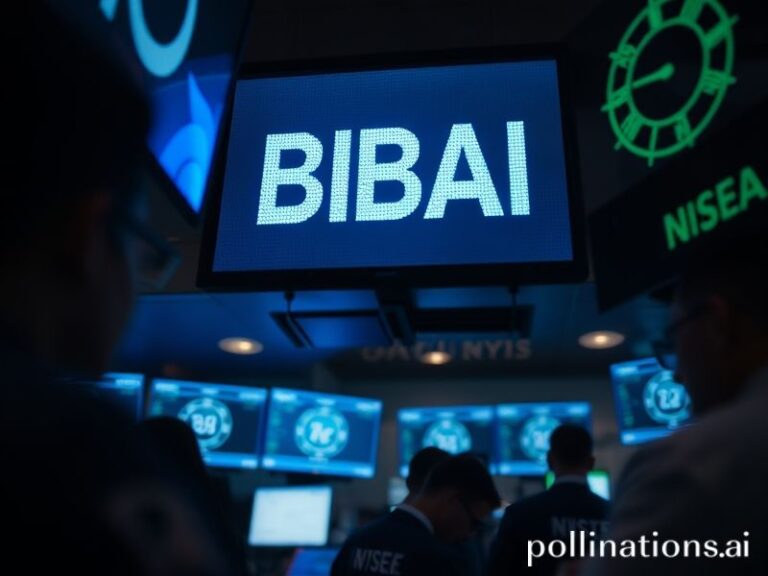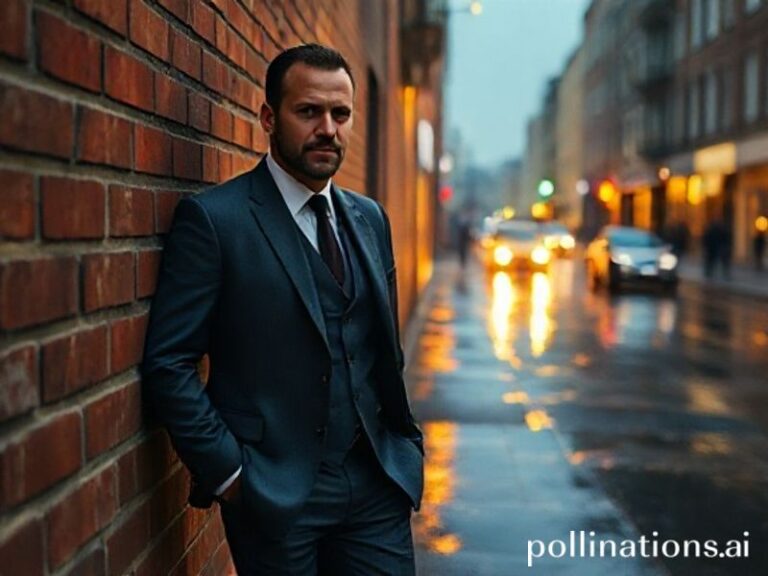Kigali: The World’s Favorite Post-Genocide Startup Pitch
KIGALI, Rwanda — The city that once exported horror movies shot in real time now exports TED-talk optimism and artisanal coffee at USD 7 a cup. In the same hills where radio broadcasts once priced machetes, venture-capitalists now pitch “Afro-fintech” to polite applause. Kigali has become the international community’s favorite redemption arc: proof that with enough donor conferences and plastic-eating worms, any place can rebrand from genocide to “green growth” in just three decades.
This is not to belittle the miracle. One does not walk Kigali’s streets—lined with jacaranda trees, surveillance cameras, and citizens who remember exactly what happened in 1994—without sensing the gravity of a society that decided to live together or die separately. The streets are cleaner than Zurich’s (littering carries a social tariff somewhere between tax evasion and matricide), and the Wi-Fi is faster than in parts of Manhattan. If you squint, you can almost see the ghost of Singapore’s Lee Kuan Yew nodding approvingly at the authoritarian tidiness.
But the world loves Kigali for darker reasons. Western governments, exhausted by their own populist circuses, point to Rwanda as a disciplined child who ate his vegetables and balanced the budget. Never mind that the vegetables were pre-selected by a ruling party that wins elections with the enthusiasm of a North Korean census. Kigali is the city where Davos Man can sip ethically sourced single-origin while congratulating himself on having finally solved Africa—provided he doesn’t ask who gets invited to the next shareholder meeting.
Globally, Kigali has become the control experiment for post-conflict capitalism. The IMF drops by for quarterly weigh-ins like a Weight-Watchers coach for nations. Chinese contractors pave roads in exchange for minerals with the transactional warmth of a vending machine. Qatar Airways bankrolls the new Bugesera airport, ensuring that future climate refugees can be efficiently airlifted to whichever hemisphere still has water. Meanwhile, the African Continental Free Trade Area, headquartered here, promises to turn the continent into a single duty-free shopping mall—assuming, of course, that member states can agree on whether the Wi-Fi password should be in French or English.
The city’s skyline, once a modest collection of telecom masts and trauma, now bristles with glass boxes that house NGOs, co-working spaces, and the occasional ministry. Each new tower is an obelisk to the axiom that nothing reconciles a society faster than shared real-estate appreciation. Property prices have risen so sharply that locals joke the only affordable housing left is in the memory of those who can recall when goats outnumbered Range Rovers.
And yet, the cynic’s heart softens. On the last Saturday of every month, traffic stops for Umuganda—mandatory community service—during which citizens pick up litter while politicians pick up photo-ops. It’s hard to sneer when you see a former militiaman planting a tree next to the widow of the man he might have killed, both politely supervised by a drone operated from an EU-funded smart-city kiosk. There’s something almost moving in the bureaucratic choreography of reconciliation, like watching accountants waltz on a mass grave.
What Kigali offers the world, then, is not a fairy-tale ending but a cautiously footnoted sequel: the knowledge that even the most efficient nation-building still requires selective amnesia and a robust public-relations budget. Visitors leave with souvenir baskets woven by genocide survivors and a nagging sense that somewhere, a spreadsheet is quietly erasing the parts of the story that don’t fit the PowerPoint.
In the end, Kigali teaches the same lesson Rome, Berlin, and Hiroshima taught before it: cities can rise from ashes, but the smell lingers. The trick is to bottle that scent, label it “resilience,” and export it at a premium. The world will buy—if only to convince itself that redemption is a growth industry with quarterly dividends.







